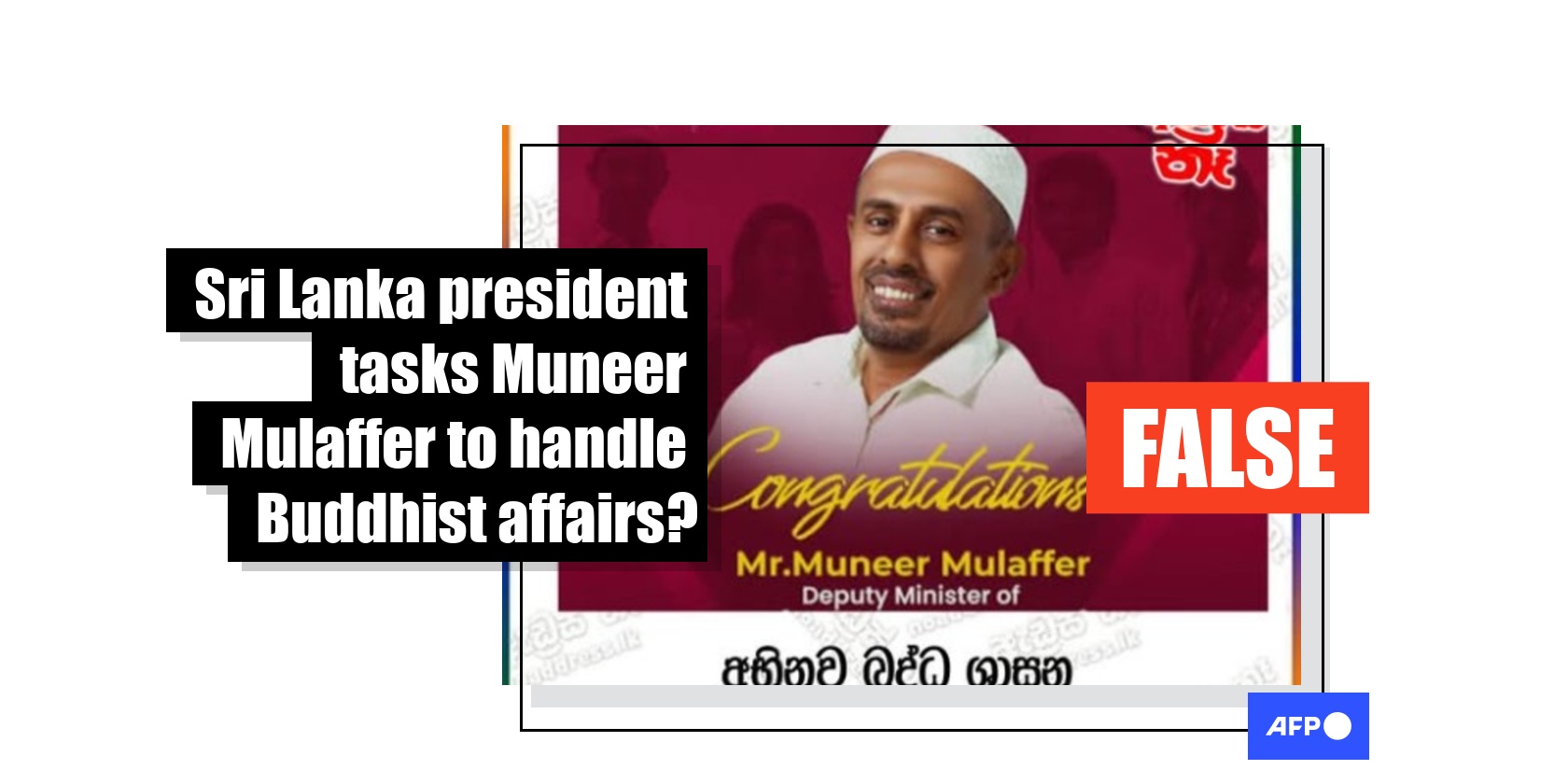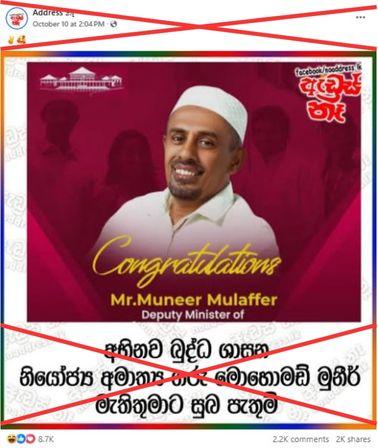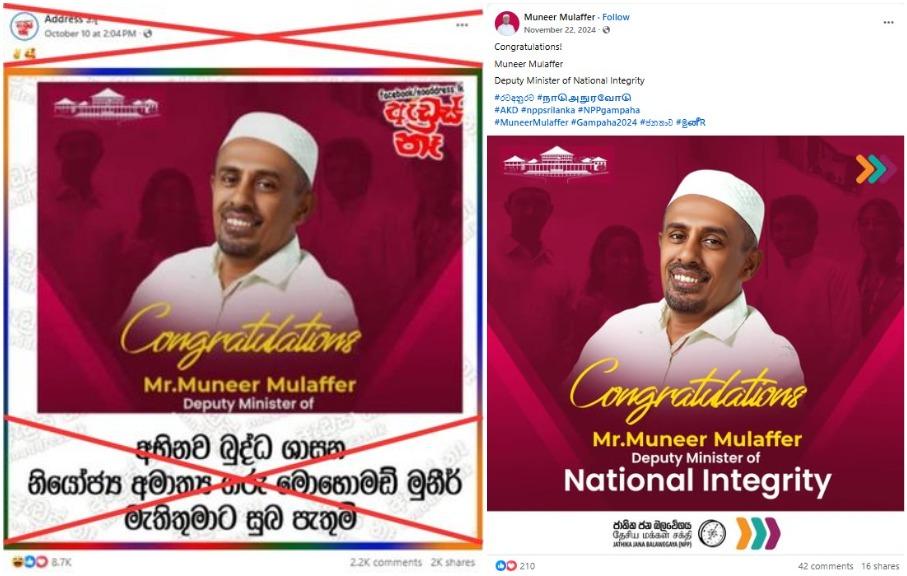
False claims target Muslim lawmaker in Buddhist-majority Sri Lanka
- Published on October 30, 2025 at 11:04
- 3 min read
- By Harshana SILVA, AFP Sri Lanka
Long-simmering religious tensions between Sri Lanka's Buddhist majority and Muslim minority are fanning false claims that Muslim politician Muneer Mulaffer was named deputy minister for Buddhist affairs. Mulaffer was given a position that handles broader religious and cultural matters, and the portfolio for Buddhist affairs belongs to another deputy minister.
"Congratulations to the honourable new deputy minister of Buddhist Affairs, Mr. Mohammed Muneer," reads a Sinhala-language Facebook post shared on October 10, 2025.
The post, which has been shared more than 2,000 times, features an image of Mulaffer in a kufi cap with the text "congratulations" superimposed on it.
The posts emerged after President Anura Kumara Dissanayake announced a cabinet reshuffle on October 10, 2025 and appointed Mulaffer, who previously held another position, as deputy minister of religious and cultural affairs (archived here and here).
The position falls under the Ministry of Buddhasasana, Religious and Cultural Affairs, which was established primarily to promote and protect Buddhist teachings, but whose functions have since been expanded to oversee religious and cultural matters (archived link).

Sri Lanka, a Buddhist-majority island nation, has a history of ethnic unrest -- the most severe being the 1983 massacre known as "Black July" -- which resulted in a civil war killing around 100,000 people (archived link).
Clashes between the Buddhist majority and the Muslim minority in 2018 triggered a nationwide state of emergency, while the Easter Sunday attacks on April 21, 2019, led to Muslims increasingly becoming the target of hate speech across social media platforms (archived here, here and here).
Similar claims -- which have also been debunked by Sri Lanka fact-checking organisation Fact Crescendo -- spread elsewhere on Facebook and X. Islamophobic comments on the false post suggest users were misled.
"Honestly, how can this be? In this Sinhala-Buddhist country, don't they have enough brains?" one wrote.
Another said: "He’ll make the almsgiving to the temples Halal and ban women from coming to the temples. He will make it mandatory to go temples on Fridays."
But Prasanna Perera, a spokesperson for the President's Media Division, refuted the claim.
"Mr Muneer Mulaffer has been appointed as the Deputy Minister of Religious and Cultural Affairs, while the area of Buddhist Affairs does not fall under his responsibilities. The Subject of Buddhist Affairs is overseen by Mr Gamagedara Dissanayake, who serves as the Deputy Minister of Buddhasasana, Religious and Cultural Affairs," he told AFP on October 27.
Human rights and governance researcher D.M. Dissanayake said Muneer's appointment is the government's way of ensuring someone can closely monitor concerns and issues affecting Muslims.
"Previously, the government had appointed a deputy minister to support the minister and his ministerial activity. However, as a multi-religious and culturally diverse country, communities with other religious beliefs and cultures felt they were left behind because they had no assigned person to address their issues," he told AFP on October 29.
"The government, in filling that gap, has appointed a new deputy minister to attend to matters related to Muslims, and he will mainly look after that section. He will also support the minister of religious affairs in making decisions to ensure not excluding the relevant community."
The image shared in the false posts is also altered.
A reverse image search led to a post from Mulaffer’s official Facebook account, which shared the image on November 22, 2024 to congratulate him on his appointment as deputy minister for national integration (archived link).

AFP contacted Mulaffer and his spokesman for comment, but responses were not forthcoming.
AFP has previously debunked other false and misleading claims about Sri Lankan lawmakers here and here.
Copyright © AFP 2017-2026. Any commercial use of this content requires a subscription. Click here to find out more.
Is there content that you would like AFP to fact-check? Get in touch.
Contact us
